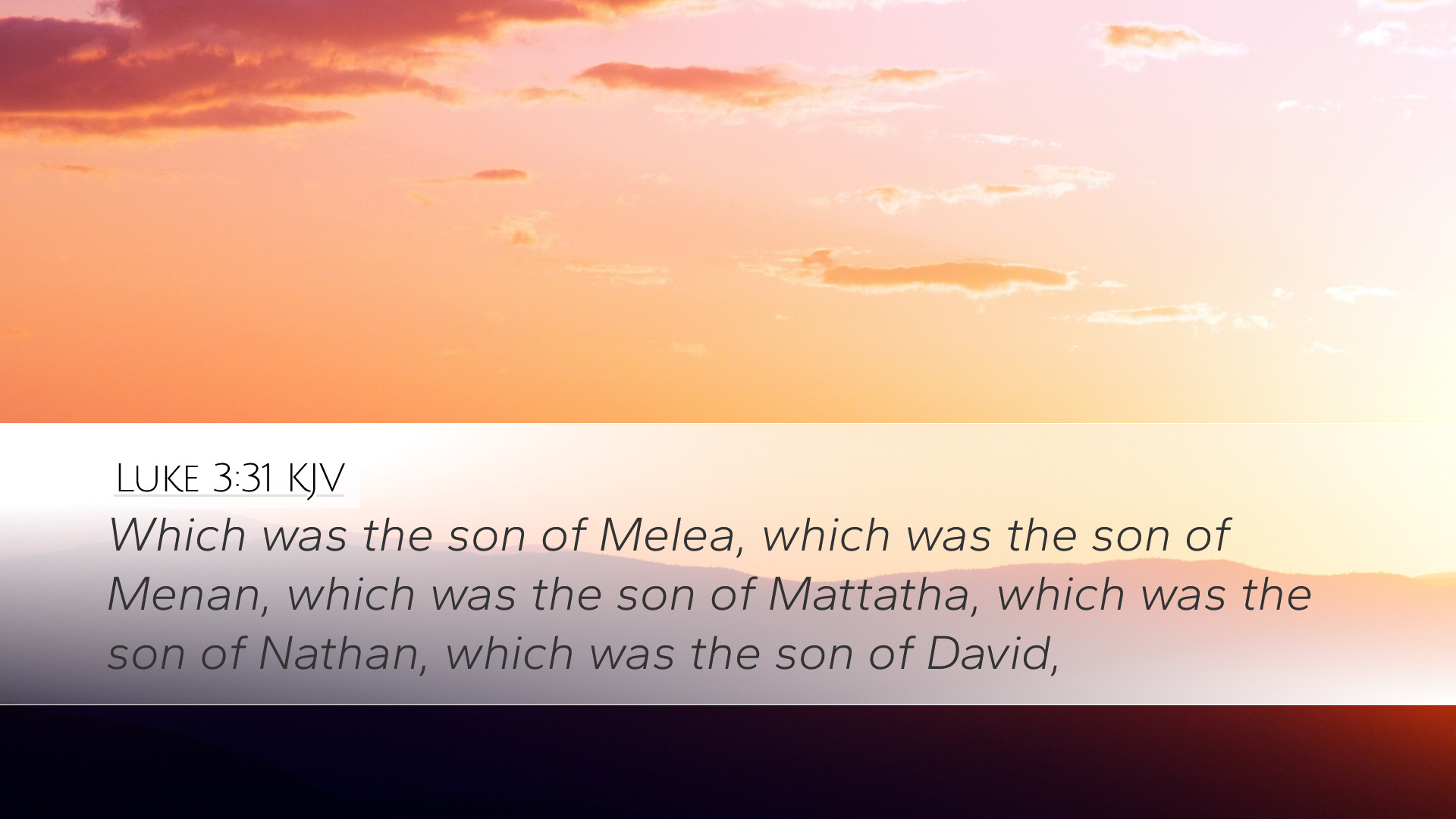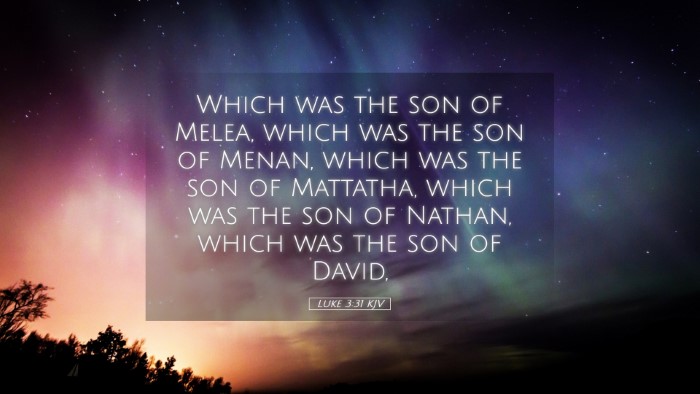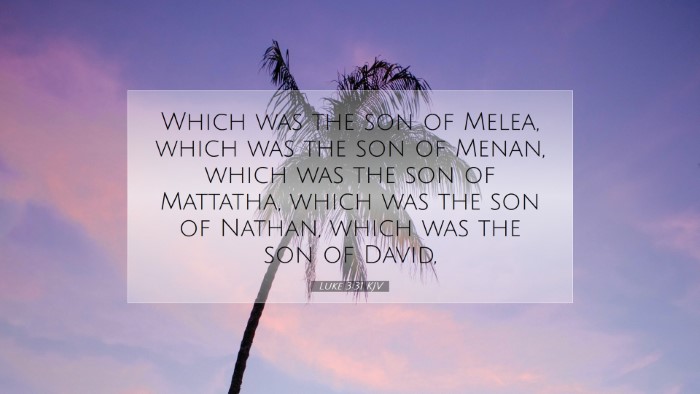Commentary on Luke 3:31
Verse Context: Luke 3:31 states, “The son of Melea, the son of Menna, the son of Mattatha, the son of Nathan, the son of David,” emphasizing the genealogical line of Jesus Christ as recorded in the Gospel of Luke.
This verse appears within a larger context of Jesus' genealogy, which serves vital theological purposes. It is essential to look at the implications of this lineage as it establishes both the humanity and divinity of Jesus Christ.
Genealogical Importance in Scripture
Historical Context: In ancient times, genealogy was crucial for establishing identity, legitimacy, and tribal heritage among the Israelites. Luke’s account highlights Jesus’ rightful place within the Davidic lineage, fulfilling the Old Testament prophecies concerning the Messiah.
Insights from Matthew Henry
Matthew Henry, in his commentary, emphasizes the significance of Jesus being a descendant of David. He notes:
- Royal Lineage: The mention of David establishes Jesus as the anointed King within the royal line, resonating with the promise made in 2 Samuel 7:16 where God promises David an everlasting dynasty.
- Ideal King: Henry reflects on how this genealogy reinforces Jesus as the perfect fulfillment of what an ideal King should be—one who rules with justice and righteousness.
Insights from Albert Barnes
Albert Barnes adds a layer of understanding regarding the genealogical listing:
- Phrasing and Translation: Barnes notes the differences in genealogical records found in the gospels of Matthew and Luke. He suggests that Matthew traces Jesus' lineage through Joseph, while Luke provides the lineage through Mary, emphasizing His human aspect.
- Prophetic Fulfillment: This genealogy illustrates the fulfillment of messianic prophecies, as both genealogies eventually link back to David, reinforcing Christ’s legal right to the throne.
Insights from Adam Clarke
Adam Clarke provides a detailed examination of the names in the genealogy:
- Significance of Names: Clarke highlights the names mentioned not just as a historical record but also as a testimony to the faithfulness of God through generations.
- David’s Lineage and Its Importance: Clarke expresses that the recognition of Nathan as a son of David (as opposed to Solomon, emphasized by Matthew) provides a critical understanding of Jesus' heritage, presenting Him as the fulfillment of all covenant promises.
Theological Reflections
Beyond the historical significance of this lineage, several theological implications stand out:
- Christ’s Humanity: The genealogy emphasizes Christ’s human lineage, indicating that He fully identifies with humanity, born into a particular family and heritage, thus being able to empathize with human struggles.
- Divine Appointment: While tracing His roots on earth, the passage simultaneously affirms His divine nature as the Messiah, one destined to shepherd His people through the lineage of David.
- Inclusivity of the Gospel: The presence of various names and backgrounds in the genealogy illustrates God's plan for salvation through Jesus reaching all of humanity, irrespective of social or ethnic backgrounds.
Practical Applications for Today
In conclusion, Luke 3:31 can inspire several practical applications for pastors, students, theologians, and Bible scholars:
- Understanding Purpose: Reflect on the purpose God has for individuals, acknowledging that every name in the genealogy has significance, reminding believers that they too have a purpose in the divine narrative.
- Covenantal Faithfulness: Emphasize the faithfulness of God through generations, encouraging congregations to trust in God's promises manifested in their lives.
- Identity in Christ: Cherish the understanding that, like Christ, believers are part of a greater family defined not just by lineage but by faith, hope, and love.
In essence, Luke 3:31, while merely a record of ancestry, opens a window into God's unfolding plan for redemption, emphasizing the centrality of Christ as both fully divine and fully human.


